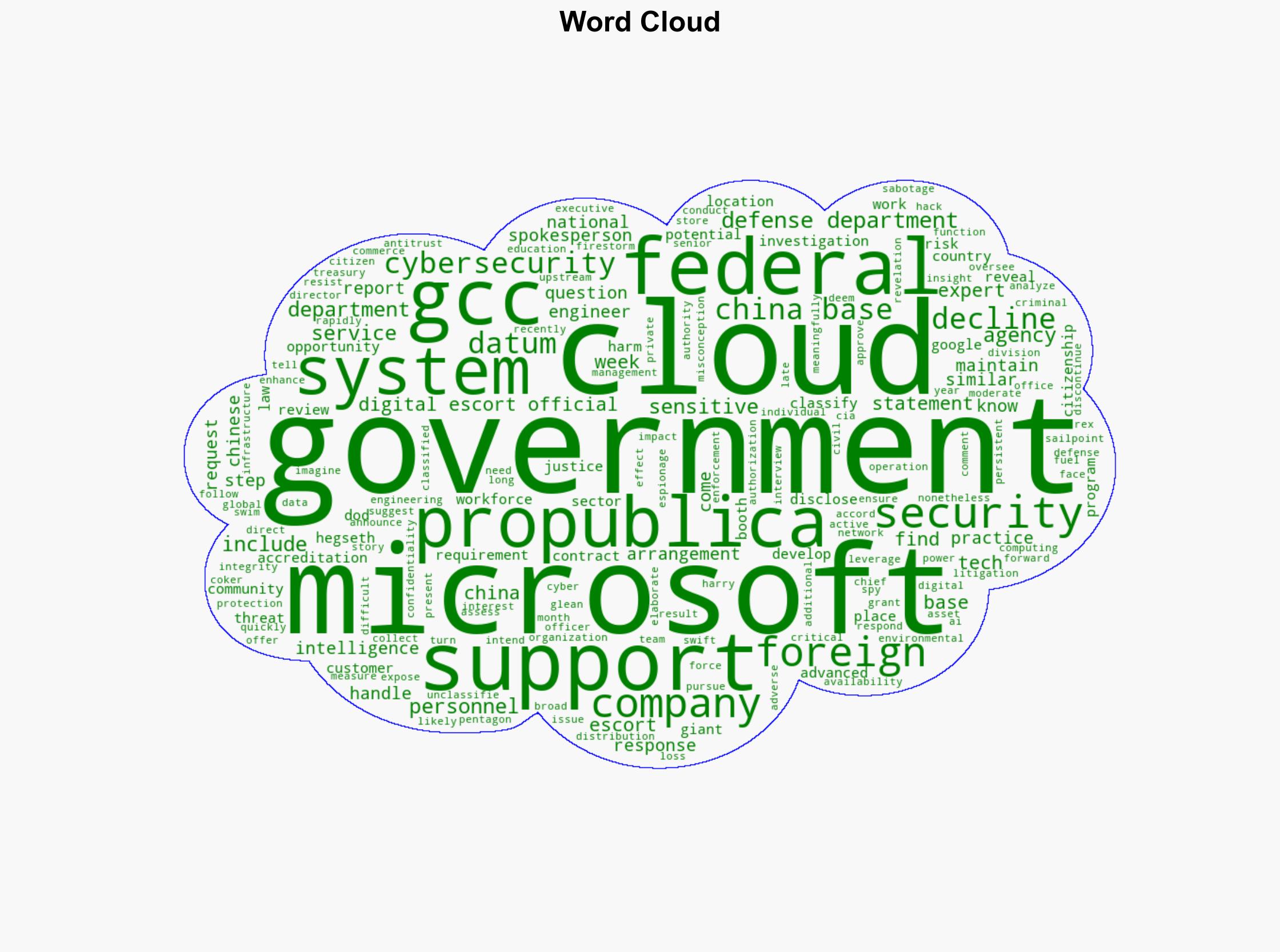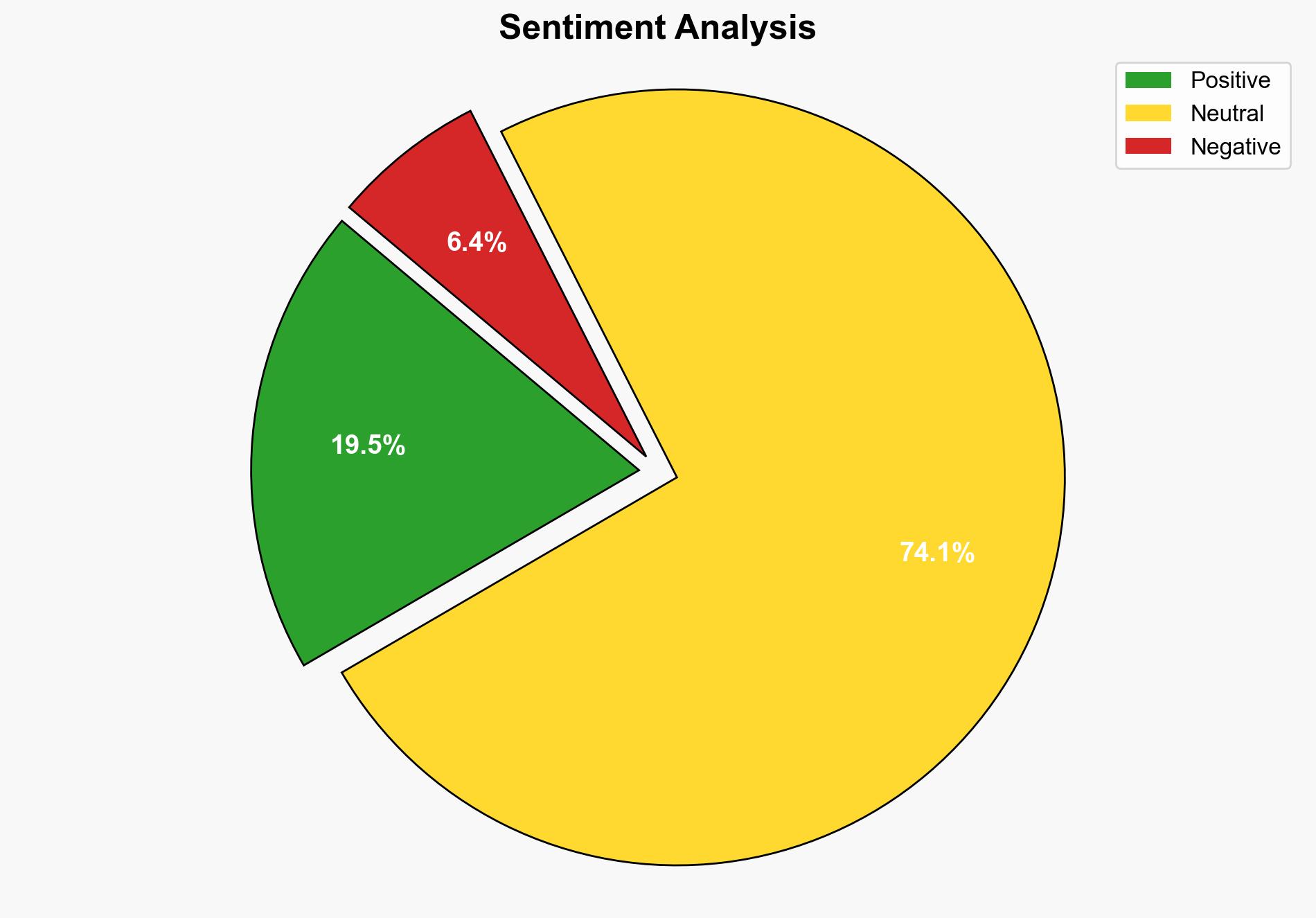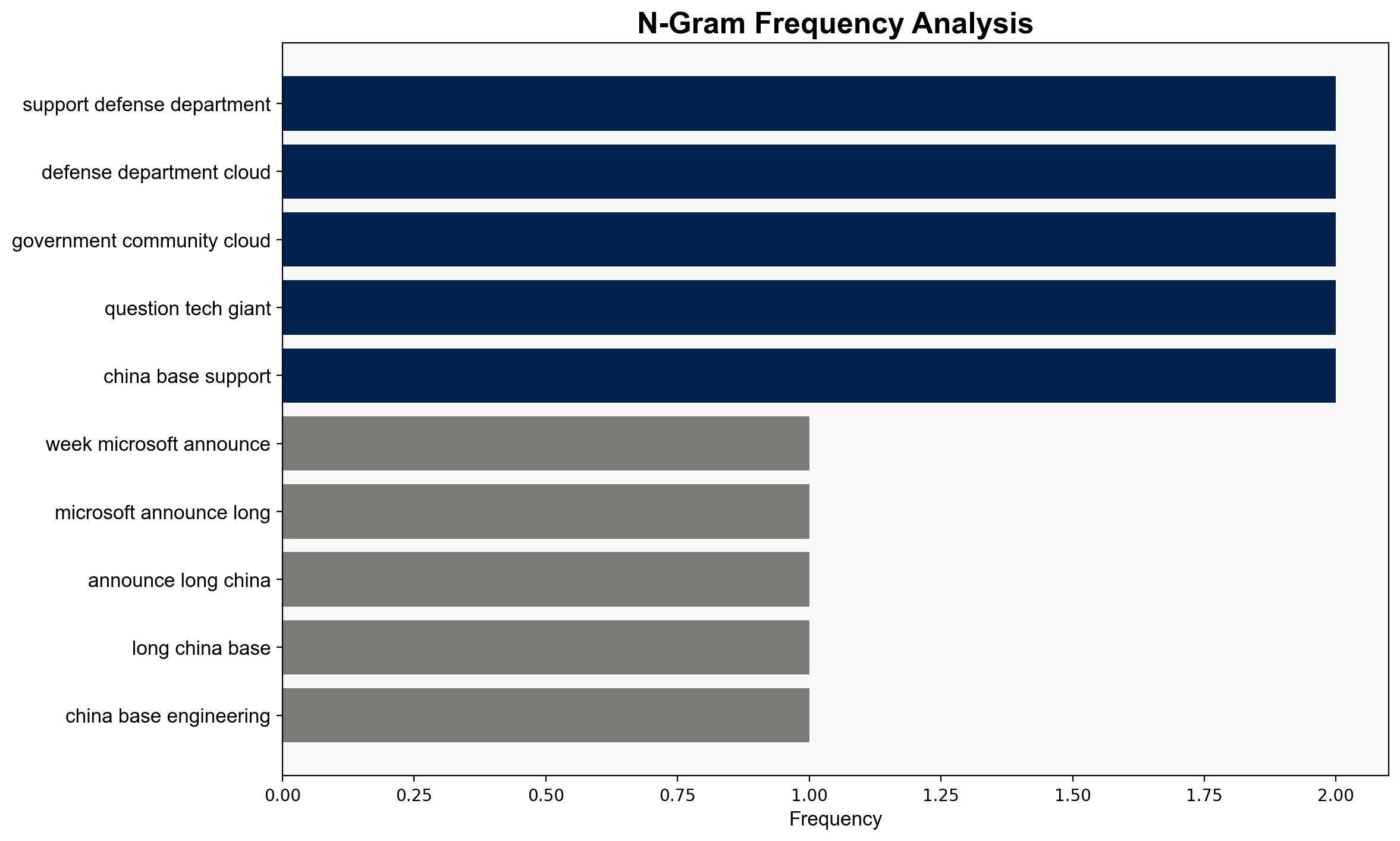Microsoft Used China-Based Support for Multiple US Agencies Potentially Exposing Sensitive Data – ProPublica
Published on: 2025-07-25
Intelligence Report: Microsoft Used China-Based Support for Multiple US Agencies Potentially Exposing Sensitive Data – ProPublica
1. BLUF (Bottom Line Up Front)
The most supported hypothesis is that Microsoft’s use of China-based personnel for supporting U.S. government cloud systems presents a significant cybersecurity risk, potentially exposing sensitive data to foreign espionage. Confidence in this assessment is moderate due to the lack of direct evidence of data breaches. Recommended action includes immediate review and restructuring of cloud support operations to mitigate risks.
2. Competing Hypotheses
1. **Hypothesis A**: Microsoft’s use of China-based support staff has led to potential exposure of sensitive U.S. government data, increasing the risk of espionage by foreign intelligence services.
2. **Hypothesis B**: The presence of China-based support staff is a standard business practice with adequate security measures in place, posing no significant additional risk to U.S. government data.
Using the Analysis of Competing Hypotheses (ACH) 2.0, Hypothesis A is better supported due to the persistent cyber threat posed by China and the broad authority granted to Chinese entities to collect data. Hypothesis B lacks support given the potential for oversight and the inherent risks of foreign personnel handling sensitive systems.
3. Key Assumptions and Red Flags
– **Assumptions for Hypothesis A**: Chinese personnel have the capability and intent to exploit access for espionage. Security measures are insufficient to prevent data exposure.
– **Assumptions for Hypothesis B**: Security protocols are robust and effectively mitigate risks. Microsoft has complete oversight over foreign personnel.
– **Red Flags**: Lack of transparency from Microsoft on specific security measures. Potential bias in underestimating the cybersecurity threat from China.
4. Implications and Strategic Risks
– **Cybersecurity Risks**: Potential for unauthorized access to sensitive government data, leading to espionage or sabotage.
– **Geopolitical Risks**: Strained U.S.-China relations could exacerbate tensions, impacting diplomatic and economic engagements.
– **Economic Risks**: Potential loss of trust in U.S. technology companies, affecting their market position and financial performance.
– **Escalation Scenarios**: Increased scrutiny and regulation of foreign involvement in critical infrastructure could lead to retaliatory measures by China.
5. Recommendations and Outlook
- Conduct a comprehensive security audit of all cloud systems supported by foreign personnel.
- Implement stricter oversight and control measures for foreign staff involved in sensitive operations.
- Develop contingency plans for rapid response to potential data breaches.
- Scenario Projections:
- **Best Case**: Enhanced security measures prevent data breaches, maintaining trust in U.S. technology firms.
- **Worst Case**: Data breach occurs, leading to significant national security and diplomatic fallout.
- **Most Likely**: Increased scrutiny and gradual implementation of stronger security protocols reduce risks over time.
6. Key Individuals and Entities
– Microsoft
– ProPublica
– Rex Booth
– Harry Coker
– Pete Hegseth
7. Thematic Tags
national security threats, cybersecurity, counter-terrorism, regional focus





